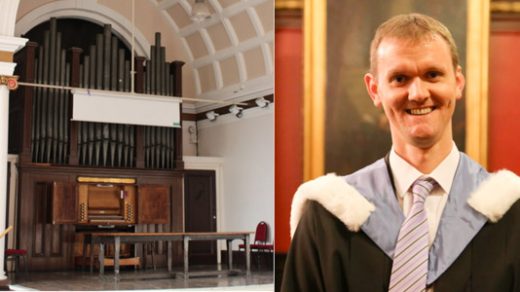Current education system too academically focused, says Lords Committee

A House of Lords report published today, Tuesday 12 December, has warned that the current education system for 11–16 year olds is too focused on academic learning and written exams, limiting opportunities for pupils to study a broad and balanced curriculum and to develop core skills.
After hearing from a range of witnesses, including pupils, teachers, school leaders, academics, and ministers, the cross-party Education for 11–16 Year Olds Committee has called for bold reform. The committee argues that change is needed to the 11–16 curriculum and assessment model, to create more space for technical, digital and creative areas of study, and reduce the burden of GCSE exams.
The report, ‘Requires improvement: urgent change for 11–16 education’, also calls on the government to address the negative effects of the current school performance measures, including by abandoning immediately the English Baccalaureate (EBacc).
To achieve change, the committee urges the government to:
1. reform the 11–16 curriculum by:
- reducing the dominance of rote learning, freeing up capacity for schools and teachers to offer a more varied, richer range of learning experiences and develop a broader set of skills;
- providing more opportunities at key stages 3 and 4 to study creative, cultural, vocational and technical subjects, which will open up pathways to the full range of post-16 options and nurture core talent for the future economy;
- developing and introducing a basic digital literacy qualification and a new GCSE in applied computing;
- giving pupils the option to take functional literacy and numeracy qualifications at key stage 4 which differ from, but are equal in value to, GCSE English and maths;
- embedding opportunities for oracy and communication skills development across the key stage 3 and 4 curriculums;
- embedding climate change and sustainability education across the key stage 3 and 4 curriculums.
2. change how 14 –16 year olds are assessed by:
- considering proposals to reduce significantly the amount of external assessment undertaken by pupils during key stage 4;
- introducing a greater proportion of non-exam assessment;
- driving the move towards introducing more on-screen assessment in GCSE exams.
3. revise school performance measures by:
- abandoning the English Baccalaureate (EBacc) entirely, including the ambition for 90% of pupils to be taking this subject combination, and removing all references to the EBacc from Ofsted’s school inspection handbook;
- refining the Progress 8 measure to ensure that schools maintain an appropriate level of focus on the core subjects of maths, English and science, while enabling them to promote a broader range of subjects to pupils at key stage 4.
The committee said its inquiry was established in response to growing concerns that the present 11–16 system is moving in the wrong direction, especially in relation to meeting the needs of a future digital and green economy. The report therefore also discusses, and supports the ambition of, recent proposals for reform from other bodies, such as the plan for a Greater Manchester Baccalaureate (MBacc) put forward by Mayor of Greater Manchester, Andy Burnham.
Chair of the committee, Jo Johnson, said: “The evidence we have received is compelling. Change to the education system for 11–16 year olds is urgently needed, to address an overloaded curriculum, a disproportionate exam burden and declining opportunities to study creative and technical subjects.
“Immediate and longer-term reform is essential to ensuring that our secondary system equips young people with the knowledge, skills and behaviours they need to progress to the full range of post-16 options, and to flourish in the future.”
Charity Made by Dyslexia, which aims to help people understand the value of dyslexic thinking globally, has been calling for an education reform for a number of years, and believes the report is an amazing step in the right direction.
Kate Griggs, dyslexic thinking expert and founder of global charity, Made By Dyslexia, said: “We wholeheartedly welcome the new report into secondary education by the House of Lords.
“The current exams, with their emphasis on memorising information, assimilating knowledge, and relaying it in timed tests, is no longer a measure of the skills the workplace is looking for, and severely disadvantages dyslexic learners.
“Our research with parents, teachers and dyslexic learners found 94% believe standardised tests and exams disadvantage them.
“AI is brilliant at assimilating knowledge, and in a world where humans and AI work side by side, it’s the human ability to think differently that employers are placing value on.
“Skills like innovation, lateral thinking, complex problem solving, interpersonal skills are listed as the World Economic Forum’s (WEF) most in-demand skills, and these are dyslexic thinking skills.
“We must rethink how we assess learners to prepare them for workplaces they will enter and we hope that this report will finally bring about action.”







